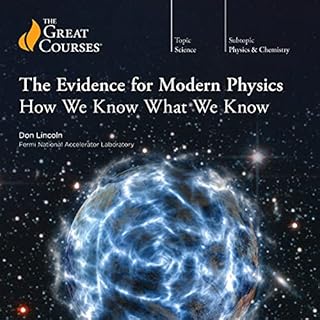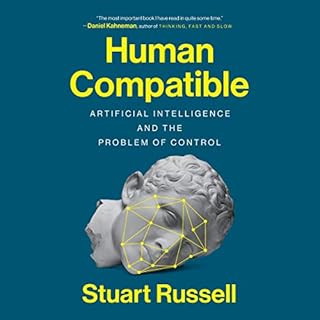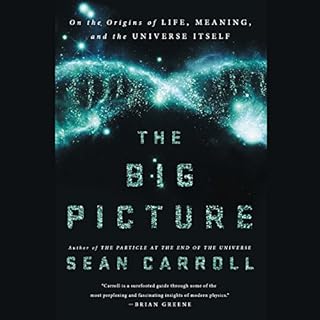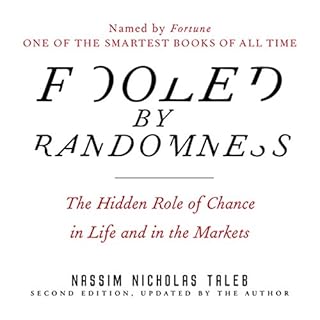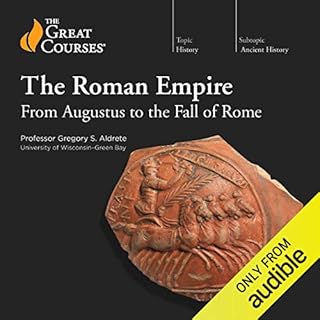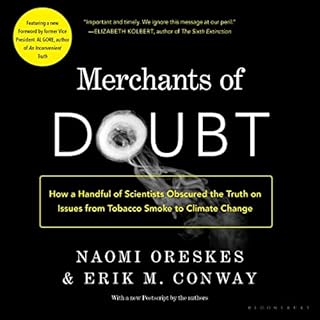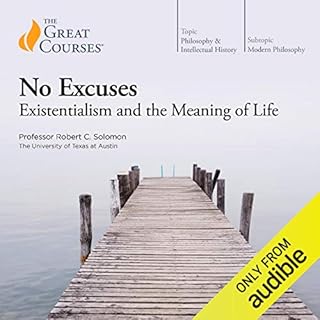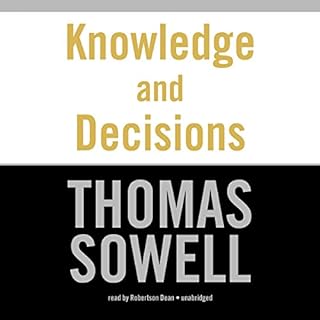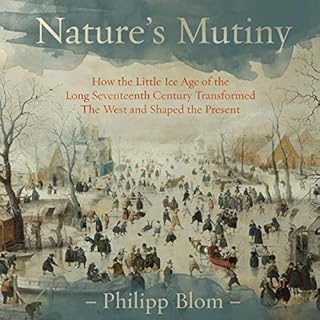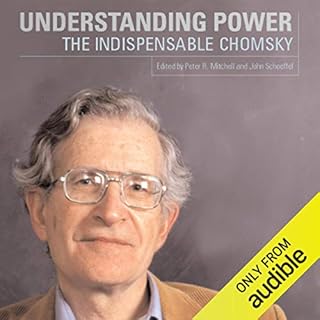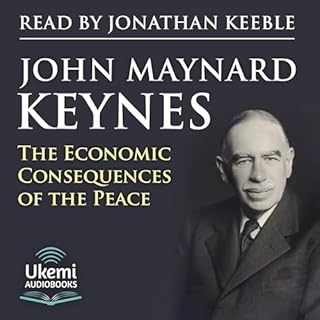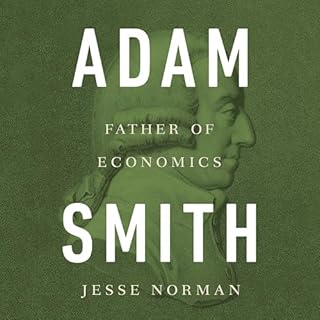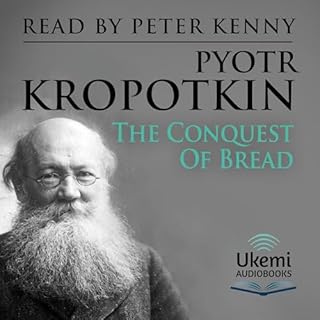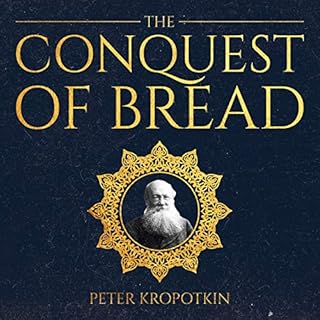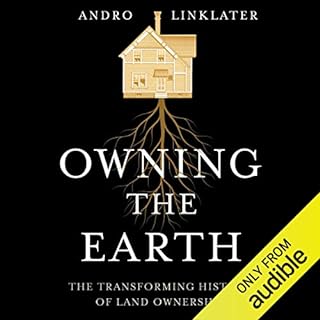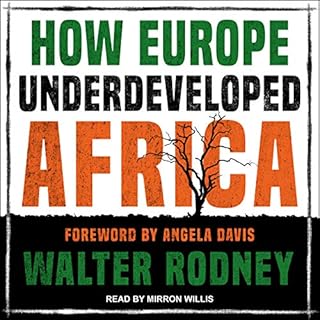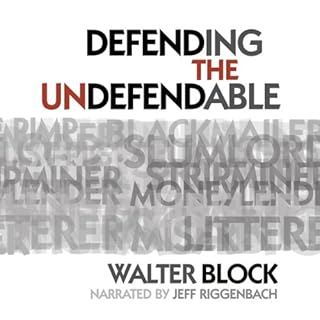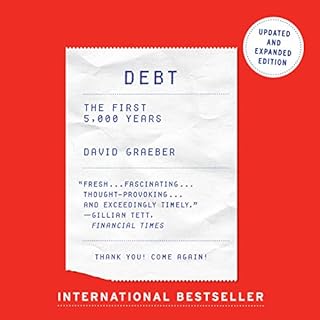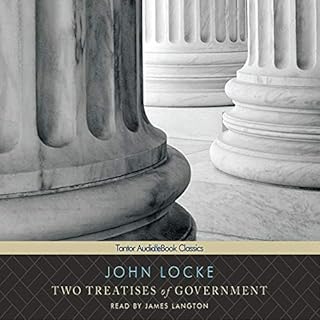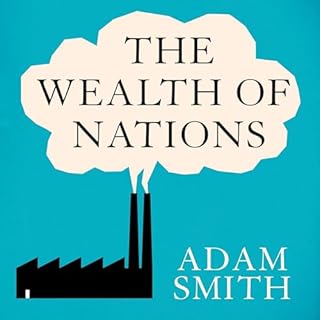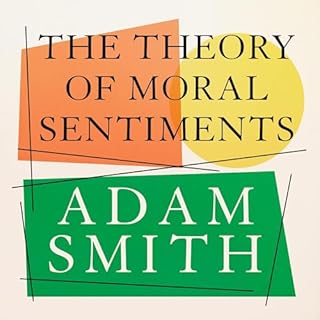
The Wealth of Nations
Failed to add items
Add to Cart failed.
Add to Wish List failed.
Remove from wishlist failed.
Adding to library failed
Follow podcast failed
Unfollow podcast failed
 Prime members: New to Audible?
Prime members: New to Audible?Get 2 free audiobooks during trial.
Buy for $25.79
No default payment method selected.
We are sorry. We are not allowed to sell this product with the selected payment method
-
Narrated by:
-
Gildart Jackson
-
By:
-
Adam Smith
About this listen
The foundation for all modern economic thought and political economy, The Wealth of Nations is the magnum opus of Scottish economist Adam Smith, who introduces the world to the very idea of economics and capitalism in the modern sense of the words. Smith details his argument in five books:
- Book I. Of the Causes of Improvement in the Productive Power of Labour
- Book II. Of the Nature, Accumulation, and Employment of Stock Introduction
- Book III. Of the Different Progress of Opulence in Different Nations
- Book IV. Of Systems of Political Economy
- Book V. Of the Revenue of the Sovereign or Commonwealth
Taken together, these books form a giant leap forward in the field of economics. A product of the "Age of Enlightenment," The Wealth of Nations is a must for all who wish to gain a better understanding of the principles upon which all modern capitalistic economies have been founded and the process of wealth creation that is engendered by those principles.
Public Domain (P)2010 TantorListeners also enjoyed...
-
The Theory of Moral Sentiments
- By: Adam Smith
- Narrated by: Michael Lunts
- Length: 16 hrs and 28 mins
- Unabridged
-
Overall4.5 out of 5 stars 123
-
Performance4.5 out of 5 stars 111
-
Story4.5 out of 5 stars 109
The Theory of Moral Sentiments (1759) was the first major text by Adam Smith who, seven years later, was to publish what was to become one of the major economic classics, The Wealth of Nations (1776). However, Smith regarded The Theory of Moral Sentiments as his most important work because in it he identified the profound human instinct to act not necessarily in self-interest but through, as he phrased it, a ‘mutual sympathy of sentiments’.
-
5 out of 5 stars
-
What Makes Humans Humane
- By Zeno on 10-06-18
By: Adam Smith
-
The Communist Manifesto
- By: Karl Marx
- Narrated by: Greg Wagland
- Length: 1 hr and 34 mins
- Unabridged
-
Overall4 out of 5 stars 1,270
-
Performance4.5 out of 5 stars 1,086
-
Story4 out of 5 stars 1,073
‘It was a sweet finish after the bitter pills of floggings and bullets with which these same governments, just at that time, dosed the German working-class risings’. The Communist Manifesto is, perhaps surprisingly, a most engaging and accessible work, containing even the odd shaft of humour in this translation by Samuel Moore for the 1888 English edition.
-
5 out of 5 stars
-
Forcibly over throw anyone who owns land?
- By Austin Hair on 02-13-20
By: Karl Marx
-
The American Civil War
- By: Gary W. Gallagher, The Great Courses
- Narrated by: Gary W. Gallagher
- Length: 24 hrs and 37 mins
- Original Recording
-
Overall5 out of 5 stars 4,622
-
Performance4.5 out of 5 stars 4,099
-
Story5 out of 5 stars 4,074
Between 1861 and 1865, the clash of the greatest armies the Western hemisphere had ever seen turned small towns, little-known streams, and obscure meadows in the American countryside into names we will always remember. In those great battles, those streams ran red with blood-and the United States was truly born.
-
5 out of 5 stars
-
Excellent Series
- By Rodney on 07-09-13
By: Gary W. Gallagher, and others
-
Lying
- By: Sam Harris
- Narrated by: Sam Harris
- Length: 1 hr and 15 mins
- Unabridged
-
Overall4.5 out of 5 stars 6,673
-
Performance4.5 out of 5 stars 5,684
-
Story4.5 out of 5 stars 5,594
As it was in Anna Karenina, Madame Bovary, and Othello, so it is in life. Most forms of private vice and public evil are kindled and sustained by lies. Acts of adultery and other personal betrayals, financial fraud, government corruption - even murder and genocide - generally require an additional moral defect: a willingness to lie. In Lying, bestselling author and neuroscientist Sam Harris argues that we can radically simplify our lives and improve society by merely telling the truth in situations where others often lie.
-
5 out of 5 stars
-
"Telling The Truth...
- By Douglas on 11-29-13
By: Sam Harris
-
The Evidence for Modern Physics
- How We Know What We Know
- By: Professor Don Lincoln, The Great Courses
- Narrated by: Professor Don Lincoln
- Length: 11 hrs and 54 mins
- Original Recording
-
Overall5 out of 5 stars 447
-
Performance5 out of 5 stars 379
-
Story5 out of 5 stars 375
In this 24-lesson course aimed at non-scientists, noted particle physicist Dr. Don Lincoln of Fermi National Accelerator Laboratory covers more than a century of progress in physics, describing exactly how scientists reach the conclusions they do. He starts with the atom, which was long hypothesized but wasn’t definitively proven until a paper by Albert Einstein in 1905. That was just the beginning, as researchers probed ever deeper into the atom’s complex structure, leading to the weird findings of quantum mechanics.
-
5 out of 5 stars
-
Strongly Recommend for Everyone
- By Liam A on 05-23-21
By: Professor Don Lincoln, and others
-
Human Compatible
- Artificial Intelligence and the Problem of Control
- By: Stuart Russell
- Narrated by: Raphael Corkhill
- Length: 11 hrs and 38 mins
- Unabridged
-
Overall4.5 out of 5 stars 578
-
Performance4.5 out of 5 stars 476
-
Story4.5 out of 5 stars 469
In the popular imagination, superhuman artificial intelligence is an approaching tidal wave that threatens not just jobs and human relationships, but civilization itself. Conflict between humans and machines is seen as inevitable and its outcome all too predictable. In this groundbreaking audiobook, distinguished AI researcher Stuart Russell argues that this scenario can be avoided, but only if we rethink AI from the ground up. Russell begins by exploring the idea of intelligence in humans and in machines.
-
3 out of 5 stars
-
Good General Introduction to AI Topic
- By Catherine Puma on 03-26-20
By: Stuart Russell
-
The Theory of Moral Sentiments
- By: Adam Smith
- Narrated by: Michael Lunts
- Length: 16 hrs and 28 mins
- Unabridged
-
Overall4.5 out of 5 stars 123
-
Performance4.5 out of 5 stars 111
-
Story4.5 out of 5 stars 109
The Theory of Moral Sentiments (1759) was the first major text by Adam Smith who, seven years later, was to publish what was to become one of the major economic classics, The Wealth of Nations (1776). However, Smith regarded The Theory of Moral Sentiments as his most important work because in it he identified the profound human instinct to act not necessarily in self-interest but through, as he phrased it, a ‘mutual sympathy of sentiments’.
-
5 out of 5 stars
-
What Makes Humans Humane
- By Zeno on 10-06-18
By: Adam Smith
-
The Communist Manifesto
- By: Karl Marx
- Narrated by: Greg Wagland
- Length: 1 hr and 34 mins
- Unabridged
-
Overall4 out of 5 stars 1,270
-
Performance4.5 out of 5 stars 1,086
-
Story4 out of 5 stars 1,073
‘It was a sweet finish after the bitter pills of floggings and bullets with which these same governments, just at that time, dosed the German working-class risings’. The Communist Manifesto is, perhaps surprisingly, a most engaging and accessible work, containing even the odd shaft of humour in this translation by Samuel Moore for the 1888 English edition.
-
5 out of 5 stars
-
Forcibly over throw anyone who owns land?
- By Austin Hair on 02-13-20
By: Karl Marx
-
The American Civil War
- By: Gary W. Gallagher, The Great Courses
- Narrated by: Gary W. Gallagher
- Length: 24 hrs and 37 mins
- Original Recording
-
Overall5 out of 5 stars 4,622
-
Performance4.5 out of 5 stars 4,099
-
Story5 out of 5 stars 4,074
Between 1861 and 1865, the clash of the greatest armies the Western hemisphere had ever seen turned small towns, little-known streams, and obscure meadows in the American countryside into names we will always remember. In those great battles, those streams ran red with blood-and the United States was truly born.
-
5 out of 5 stars
-
Excellent Series
- By Rodney on 07-09-13
By: Gary W. Gallagher, and others
-
Lying
- By: Sam Harris
- Narrated by: Sam Harris
- Length: 1 hr and 15 mins
- Unabridged
-
Overall4.5 out of 5 stars 6,673
-
Performance4.5 out of 5 stars 5,684
-
Story4.5 out of 5 stars 5,594
As it was in Anna Karenina, Madame Bovary, and Othello, so it is in life. Most forms of private vice and public evil are kindled and sustained by lies. Acts of adultery and other personal betrayals, financial fraud, government corruption - even murder and genocide - generally require an additional moral defect: a willingness to lie. In Lying, bestselling author and neuroscientist Sam Harris argues that we can radically simplify our lives and improve society by merely telling the truth in situations where others often lie.
-
5 out of 5 stars
-
"Telling The Truth...
- By Douglas on 11-29-13
By: Sam Harris
-
The Evidence for Modern Physics
- How We Know What We Know
- By: Professor Don Lincoln, The Great Courses
- Narrated by: Professor Don Lincoln
- Length: 11 hrs and 54 mins
- Original Recording
-
Overall5 out of 5 stars 447
-
Performance5 out of 5 stars 379
-
Story5 out of 5 stars 375
In this 24-lesson course aimed at non-scientists, noted particle physicist Dr. Don Lincoln of Fermi National Accelerator Laboratory covers more than a century of progress in physics, describing exactly how scientists reach the conclusions they do. He starts with the atom, which was long hypothesized but wasn’t definitively proven until a paper by Albert Einstein in 1905. That was just the beginning, as researchers probed ever deeper into the atom’s complex structure, leading to the weird findings of quantum mechanics.
-
5 out of 5 stars
-
Strongly Recommend for Everyone
- By Liam A on 05-23-21
By: Professor Don Lincoln, and others
-
Human Compatible
- Artificial Intelligence and the Problem of Control
- By: Stuart Russell
- Narrated by: Raphael Corkhill
- Length: 11 hrs and 38 mins
- Unabridged
-
Overall4.5 out of 5 stars 578
-
Performance4.5 out of 5 stars 476
-
Story4.5 out of 5 stars 469
In the popular imagination, superhuman artificial intelligence is an approaching tidal wave that threatens not just jobs and human relationships, but civilization itself. Conflict between humans and machines is seen as inevitable and its outcome all too predictable. In this groundbreaking audiobook, distinguished AI researcher Stuart Russell argues that this scenario can be avoided, but only if we rethink AI from the ground up. Russell begins by exploring the idea of intelligence in humans and in machines.
-
3 out of 5 stars
-
Good General Introduction to AI Topic
- By Catherine Puma on 03-26-20
By: Stuart Russell
-
The Big Picture
- On the Origins of Life, Meaning, and the Universe Itself
- By: Sean Carroll
- Narrated by: Sean Carroll
- Length: 17 hrs and 22 mins
- Unabridged
-
Overall4.5 out of 5 stars 3,136
-
Performance4.5 out of 5 stars 2,761
-
Story4.5 out of 5 stars 2,732
Already internationally acclaimed for his elegant, lucid writing on the most challenging notions in modern physics, Sean Carroll is emerging as one of the greatest humanist thinkers of his generation as he brings his extraordinary intellect to bear not only on the Higgs boson and extra dimensions but now also on our deepest personal questions. Where are we? Who are we? Are our emotions, our beliefs, and our hopes and dreams ultimately meaningless out there in the void?
-
5 out of 5 stars
-
ABSOLUTE MUST READ!
- By serine on 05-12-16
By: Sean Carroll
-
Fooled by Randomness
- The Hidden Role of Chance in Life and in the Markets
- By: Nassim Nicholas Taleb
- Narrated by: Sean Pratt
- Length: 10 hrs and 3 mins
- Unabridged
-
Overall4.5 out of 5 stars 5,833
-
Performance4.5 out of 5 stars 4,509
-
Story4.5 out of 5 stars 4,487
This audiobook is about luck, or more precisely, how we perceive and deal with luck in life and business. It is already a landmark work, and its title has entered our vocabulary. In its second edition, Fooled by Randomness is now a cornerstone for anyone interested in random outcomes.
-
4 out of 5 stars
-
Pass on this one and read The Black Swan
- By Wade T. Brooks on 06-25-12
-
The General Theory of Employment, Interest, and Money
- By: John Maynard Keynes
- Narrated by: Jonathan Keeble
- Length: 14 hrs and 37 mins
- Unabridged
-
Overall4 out of 5 stars 131
-
Performance4.5 out of 5 stars 106
-
Story4 out of 5 stars 103
First published in 1936, Keynes’ ideas had evolved during the difficulties following World War 1 in Europe, and the US crash and the Depression of the 1920s-'30s and the misery of mass unemployment. He deplored the situation where a few individuals or companies stored massive wealth while vast numbers experienced poverty and insecurity (his alarm bells ring today!) and sought to promote initiatives where governments could intervene with social projects to keep money fluctuating.
-
1 out of 5 stars
-
Get the paperback
- By Brendan Clune on 02-27-19
-
The Roman Empire: From Augustus to the Fall of Rome
- By: Gregory S. Aldrete, The Great Courses
- Narrated by: Gregory S. Aldrete
- Length: 12 hrs and 41 mins
- Original Recording
-
Overall4.5 out of 5 stars 696
-
Performance4.5 out of 5 stars 608
-
Story4.5 out of 5 stars 601
The Roman Empire: From Augustus to the Fall of Rome traces the breathtaking history from the empire’s foundation by Augustus to its Golden Age in the 2nd century CE through a series of ever-worsening crises until its ultimate disintegration. Taught by acclaimed Professor Gregory S. Aldrete of the University of Wisconsin-Green Bay, these 24 captivating lectures offer you the chance to experience this story like never before, incorporating the latest historical insights that challenge our previous notions of Rome’s decline.
-
5 out of 5 stars
-
Gregory S. Aldrete is a treasure
- By Laurel Tucker on 02-04-19
By: Gregory S. Aldrete, and others
-
Why Nations Fail
- The Origins of Power, Prosperity, and Poverty
- By: Daron Acemoglu, James A. Robinson
- Narrated by: Dan Woren
- Length: 17 hrs and 55 mins
- Unabridged
-
Overall4.5 out of 5 stars 4,492
-
Performance4.5 out of 5 stars 3,728
-
Story4.5 out of 5 stars 3,717
Brilliant and engagingly written, Why Nations Fail answers the question that has stumped the experts for centuries: Why are some nations rich and others poor, divided by wealth and poverty, health and sickness, food and famine?
-
4 out of 5 stars
-
Pros and Cons of "Why Nations Fail"
- By Joshua Kim on 05-01-12
By: Daron Acemoglu, and others
-
Merchants of Doubt
- How a Handful of Scientists Obscured the Truth on Issues from Tobacco Smoke to Global Warming
- By: Naomi Oreskes, Erik M. Conway, Al Gore - foreword
- Narrated by: Liza Seneca
- Length: 14 hrs and 23 mins
- Unabridged
-
Overall5 out of 5 stars 37
-
Performance5 out of 5 stars 30
-
Story4.5 out of 5 stars 30
Merchants of Doubt has been praised—and attacked—around the world, for reasons easy to understand. This book tells, with “brutal clarity” (Huffington Post), the disquieting story of how a loose-knit group of high-level scientists and scientific advisers, with deep connections in politics and industry, ran effective campaigns to mislead the public and deny well-established scientific knowledge over four decades.
-
5 out of 5 stars
-
heroic
- By Anonymous User on 06-02-23
By: Naomi Oreskes, and others
-
Atlas Shrugged
- By: Ayn Rand
- Narrated by: Scott Brick
- Length: 62 hrs and 56 mins
- Unabridged
-
Overall4.5 out of 5 stars 18,949
-
Performance4.5 out of 5 stars 15,640
-
Story4.5 out of 5 stars 15,689
In a scrap heap within an abandoned factory, the greatest invention in history lies dormant and unused. By what fatal error of judgment has its value gone unrecognized, its brilliant inventor punished rather than rewarded for his efforts? In defense of those greatest of human qualities that have made civilization possible, one man sets out to show what would happen to the world if all the heroes of innovation and industry went on strike.
-
4 out of 5 stars
-
Hurt version decidedly superior
- By Mica on 03-24-09
By: Ayn Rand
-
No Excuses: Existentialism and the Meaning of Life
- By: Robert C. Solomon, The Great Courses
- Narrated by: Robert C. Solomon
- Length: 12 hrs and 7 mins
- Original Recording
-
Overall4.5 out of 5 stars 2,314
-
Performance4.5 out of 5 stars 1,984
-
Story4.5 out of 5 stars 1,944
What is life? What is my place in it? What choices do these questions obligate me to make? More than a half-century after it burst upon the intellectual scene - with roots that extend to the mid-19th century - Existentialism's quest to answer these most fundamental questions of individual responsibility, morality, and personal freedom, life has continued to exert a profound attraction.
-
4 out of 5 stars
-
Good for even a non-existentialist
- By Gary on 07-24-15
By: Robert C. Solomon, and others
-
Economics in One Lesson
- By: Henry Hazlitt
- Narrated by: Jeff Riggenbach
- Length: 6 hrs and 55 mins
- Unabridged
-
Overall4.5 out of 5 stars 2,906
-
Performance4.5 out of 5 stars 2,190
-
Story4.5 out of 5 stars 2,177
A million-copy seller, Henry Hazlitt’s Economics in One Lesson is a classic economic primer. But it is also much more, having become a fundamental influence on modern “libertarian” economics of the type espoused by Ron Paul and others. Called by H. L. Mencken “one of the few economists in history who could really write,” Henry Hazlitt achieved lasting fame for this brilliant but concise work.
-
5 out of 5 stars
-
The truth about Economics
- By Captain Amazing! on 02-01-03
By: Henry Hazlitt
-
Knowledge and Decisions
- By: Thomas Sowell
- Narrated by: Robertson Dean
- Length: 20 hrs and 53 mins
- Unabridged
-
Overall4.5 out of 5 stars 894
-
Performance5 out of 5 stars 765
-
Story5 out of 5 stars 752
This reissue of Thomas Sowell’s classic study of decision making, which includes a preface by the author, updates his seminal work in the context of The Vision of the Anointed. Sowell, one of America’s most celebrated public intellectuals, describes in concrete detail how knowledge is shared and disseminated throughout modern society. He warns that society suffers from an ever-widening gap between firsthand knowledge and decision making—a gap that threatens not only our economic and political efficiency but our very freedom.
-
5 out of 5 stars
-
Thomas Sowell's Greatest Work
- By Doug on 12-08-12
By: Thomas Sowell
-
Nature's Mutiny
- How the Little Ice Age of the Long Seventeenth Century Transformed the West and Shaped the Present
- By: Philipp Blom
- Narrated by: Jonathan Keeble
- Length: 10 hrs and 32 mins
- Unabridged
-
Overall4 out of 5 stars 102
-
Performance4.5 out of 5 stars 82
-
Story4 out of 5 stars 81
Although hints of a crisis appeared as early as the 1570s, the temperature by the end of the 16th century plummeted so drastically that Mediterranean harbors were covered with ice, birds literally dropped out of the sky, and "frost fairs" were erected on a frozen Thames - with kiosks, taverns, and even brothels that become a semi-permanent part of the city. Recounting the deep legacy and far-ranging consequences of this "Little Ice Age", acclaimed historian Philipp Blom reveals how the European landscape had subtly, but ineradicably, changed by the mid-17th century.
-
2 out of 5 stars
-
Starts On Track; End Becomes Ideological Rant
- By Danioton on 06-07-20
By: Philipp Blom
-
Understanding Power
- The Indispensable Chomsky
- By: Noam Chomsky, John Schoeffel - editor, Peter R. Mitchell - editor
- Narrated by: Robin Bloodworth
- Length: 22 hrs and 12 mins
- Unabridged
-
Overall5 out of 5 stars 1,965
-
Performance4.5 out of 5 stars 1,682
-
Story5 out of 5 stars 1,661
A major new collection from "arguably the most important intellectual alive" ( The New York Times). Noam Chomsky is universally accepted as one of the preeminent public intellectuals of the modern era. Over the past thirty years, broadly diverse audiences have gathered to attend his sold-out lectures. Now, in Understanding Power, Peter Mitchell and John Schoeffel have assembled the best of Chomsky's recent talks on the past, present, and future of the politics of power.
-
5 out of 5 stars
-
Current times demand you get this into your head.
- By Comatoso on 08-12-15
By: Noam Chomsky, and others
Related to this topic
-
An Essay on the Principle of Population
- By: Thomas Malthus
- Narrated by: Gareth Armstrong
- Length: 5 hrs and 23 mins
- Unabridged
-
Overall4.5 out of 5 stars 56
-
Performance4.5 out of 5 stars 46
-
Story4.5 out of 5 stars 47
While millions face hunger, malnutrition, and starvation, the world's population is increasing by over 225,000 people per day, 80 million per year. In many countries, supplies of food and water are inadequate to support the population, so the world falls deeper and deeper into what economists call the "Malthusian trap". Here, Malthus examines the tendency of human numbers to outstrip their resources, and argues that poverty, disease, and starvation are necessary to keep societies from moving beyond their means of subsistence.
-
4 out of 5 stars
-
Important historically but still relevant
- By Stef on 01-31-24
By: Thomas Malthus
-
The Economic Consequences of the Peace
- By: John Maynard Keynes
- Narrated by: Jonathan Keeble
- Length: 8 hrs and 17 mins
- Unabridged
-
Overall4.5 out of 5 stars 50
-
Performance5 out of 5 stars 40
-
Story4.5 out of 5 stars 40
The Economic Consequences of the Peace (1919) was one of the most important documents to come out of World War I – specifically the period of the Armistice and the subsequent settlement negotiations. And, a century on, it remains of particular relevance to our times – an uncompromising and forthright analysis of how international diplomacy can be suffused by personalities, prejudices, personal ambition and outright, uncontrolled feelings of revenge.
-
5 out of 5 stars
-
Work of Genius
- By philip on 12-24-20
-
Wage-Labor and Capital
- By: Karl Marx
- Narrated by: Prashant Vallury
- Length: 1 hr and 28 mins
- Unabridged
-
Overall4.5 out of 5 stars 37
-
Performance5 out of 5 stars 26
-
Story4.5 out of 5 stars 27
"Wage-Labor and Capital" is an 1847 essay on economics by Karl Marx, which was first published in the Neue Rheinische Zeitung two years later. This essay has been widely acclaimed as the precursor to Marx’s important treatise, Das Kapital.
-
5 out of 5 stars
-
great book
- By Mike j. on 02-01-22
By: Karl Marx
-
Adam Smith
- Father of Economics
- By: Jesse Norman
- Narrated by: Jesse Norman
- Length: 13 hrs and 40 mins
- Unabridged
-
Overall4.5 out of 5 stars 55
-
Performance4.5 out of 5 stars 48
-
Story4.5 out of 5 stars 48
A dazzlingly original account of the life and thought of Adam Smith, the greatest economist of all time. In Adam Smith, political philosopher Jesse Norman dispels the myths and caricatures, and provides a far more complex portrait of the man. Offering a highly engaging account of Smith's life and times, Norman explores his work as a whole and traces his influence over two centuries to the present day. Finally, he shows how a proper understanding of Smith can help us address the problems of modern capitalism.
-
5 out of 5 stars
-
Most excellent book!
- By Harish G. Naik on 03-02-19
By: Jesse Norman
-
Money Mischief
- Episodes in Monetary History
- By: Milton Friedman
- Narrated by: Nadia May
- Length: 6 hrs and 23 mins
- Unabridged
-
Overall4 out of 5 stars 449
-
Performance4 out of 5 stars 275
-
Story4.5 out of 5 stars 273
What kind of mischief can result from misunderstanding the monetary system? The work of 2 obscure Scottish chemists destroyed the presidential prospects of William Jennings Bryan, as well as Franklin D. Roosevelt's decision to appease a few senators from the American West who helped communism triumph in China, are just 2 such mishaps cited in this important work by Nobel Prize-winning economist Milton Friedman. This accessible work also provides an in-depth discussion on the creation of value.
-
1 out of 5 stars
-
This book is not unabridged.
- By James on 01-18-09
By: Milton Friedman
-
When Money Dies
- The Nightmare of Deficit Spending, Devaluation, and Hyperinflation in Weimar, Germany
- By: Adam Fergusson
- Narrated by: Antony Ferguson
- Length: 9 hrs
- Unabridged
-
Overall4.5 out of 5 stars 601
-
Performance4.5 out of 5 stars 478
-
Story4.5 out of 5 stars 474
When Money Dies is the classic history of what happens when a nations currency depreciates beyond recovery. In 1923, with its currency effectively worthless (the exchange rate in December of that year was one dollar to 4,200,000,000,000 marks), the German republic was all but reduced to a barter economy. Expensive cigars, artworks, and jewels were routinely exchanged for staples such as bread; a cinema ticket could be bought for a lump of coal; and a bottle of paraffin for a silk shirt....
-
2 out of 5 stars
-
Useless details, missing the big points
- By Jean Le Lupi on 07-04-12
By: Adam Fergusson
-
An Essay on the Principle of Population
- By: Thomas Malthus
- Narrated by: Gareth Armstrong
- Length: 5 hrs and 23 mins
- Unabridged
-
Overall4.5 out of 5 stars 56
-
Performance4.5 out of 5 stars 46
-
Story4.5 out of 5 stars 47
While millions face hunger, malnutrition, and starvation, the world's population is increasing by over 225,000 people per day, 80 million per year. In many countries, supplies of food and water are inadequate to support the population, so the world falls deeper and deeper into what economists call the "Malthusian trap". Here, Malthus examines the tendency of human numbers to outstrip their resources, and argues that poverty, disease, and starvation are necessary to keep societies from moving beyond their means of subsistence.
-
4 out of 5 stars
-
Important historically but still relevant
- By Stef on 01-31-24
By: Thomas Malthus
-
The Economic Consequences of the Peace
- By: John Maynard Keynes
- Narrated by: Jonathan Keeble
- Length: 8 hrs and 17 mins
- Unabridged
-
Overall4.5 out of 5 stars 50
-
Performance5 out of 5 stars 40
-
Story4.5 out of 5 stars 40
The Economic Consequences of the Peace (1919) was one of the most important documents to come out of World War I – specifically the period of the Armistice and the subsequent settlement negotiations. And, a century on, it remains of particular relevance to our times – an uncompromising and forthright analysis of how international diplomacy can be suffused by personalities, prejudices, personal ambition and outright, uncontrolled feelings of revenge.
-
5 out of 5 stars
-
Work of Genius
- By philip on 12-24-20
-
Wage-Labor and Capital
- By: Karl Marx
- Narrated by: Prashant Vallury
- Length: 1 hr and 28 mins
- Unabridged
-
Overall4.5 out of 5 stars 37
-
Performance5 out of 5 stars 26
-
Story4.5 out of 5 stars 27
"Wage-Labor and Capital" is an 1847 essay on economics by Karl Marx, which was first published in the Neue Rheinische Zeitung two years later. This essay has been widely acclaimed as the precursor to Marx’s important treatise, Das Kapital.
-
5 out of 5 stars
-
great book
- By Mike j. on 02-01-22
By: Karl Marx
-
Adam Smith
- Father of Economics
- By: Jesse Norman
- Narrated by: Jesse Norman
- Length: 13 hrs and 40 mins
- Unabridged
-
Overall4.5 out of 5 stars 55
-
Performance4.5 out of 5 stars 48
-
Story4.5 out of 5 stars 48
A dazzlingly original account of the life and thought of Adam Smith, the greatest economist of all time. In Adam Smith, political philosopher Jesse Norman dispels the myths and caricatures, and provides a far more complex portrait of the man. Offering a highly engaging account of Smith's life and times, Norman explores his work as a whole and traces his influence over two centuries to the present day. Finally, he shows how a proper understanding of Smith can help us address the problems of modern capitalism.
-
5 out of 5 stars
-
Most excellent book!
- By Harish G. Naik on 03-02-19
By: Jesse Norman
-
Money Mischief
- Episodes in Monetary History
- By: Milton Friedman
- Narrated by: Nadia May
- Length: 6 hrs and 23 mins
- Unabridged
-
Overall4 out of 5 stars 449
-
Performance4 out of 5 stars 275
-
Story4.5 out of 5 stars 273
What kind of mischief can result from misunderstanding the monetary system? The work of 2 obscure Scottish chemists destroyed the presidential prospects of William Jennings Bryan, as well as Franklin D. Roosevelt's decision to appease a few senators from the American West who helped communism triumph in China, are just 2 such mishaps cited in this important work by Nobel Prize-winning economist Milton Friedman. This accessible work also provides an in-depth discussion on the creation of value.
-
1 out of 5 stars
-
This book is not unabridged.
- By James on 01-18-09
By: Milton Friedman
-
When Money Dies
- The Nightmare of Deficit Spending, Devaluation, and Hyperinflation in Weimar, Germany
- By: Adam Fergusson
- Narrated by: Antony Ferguson
- Length: 9 hrs
- Unabridged
-
Overall4.5 out of 5 stars 601
-
Performance4.5 out of 5 stars 478
-
Story4.5 out of 5 stars 474
When Money Dies is the classic history of what happens when a nations currency depreciates beyond recovery. In 1923, with its currency effectively worthless (the exchange rate in December of that year was one dollar to 4,200,000,000,000 marks), the German republic was all but reduced to a barter economy. Expensive cigars, artworks, and jewels were routinely exchanged for staples such as bread; a cinema ticket could be bought for a lump of coal; and a bottle of paraffin for a silk shirt....
-
2 out of 5 stars
-
Useless details, missing the big points
- By Jean Le Lupi on 07-04-12
By: Adam Fergusson
-
The Conquest of Bread
- By: Pyotr Kropotkin
- Narrated by: Peter Kenny
- Length: 7 hrs and 30 mins
- Unabridged
-
Overall4.5 out of 5 stars 400
-
Performance5 out of 5 stars 330
-
Story4.5 out of 5 stars 324
In The Conquest of Bread, first published in 1892, Kropotkin set out his ideas on how his heightened idealism could work. It was all the more extraordinary because he was born into an aristocratic land-owning family - with some 1,200 male serfs - though from his student years his liberal views and his fixation on the need for social change saw him take a revolutionary path. This led rapidly to decades of exile. It is a passionate, even a fierce polemic for dramatic social change.
-
5 out of 5 stars
-
“All is for All”
- By Gabriel on 01-02-19
By: Pyotr Kropotkin
-
The Conquest of Bread
- By: Peter Kropotkin
- Narrated by: Jim D Johnston
- Length: 7 hrs and 32 mins
- Unabridged
-
Overall4.5 out of 5 stars 31
-
Performance5 out of 5 stars 29
-
Story5 out of 5 stars 28
Originally written in French, The Conquest of Bread first appeared as a series of articles in the anarchist journal Le Révolté. It was first published in Paris with a preface by Élisée Reclus, who also suggested the title. Between 1892 and 1894, it was serialized in part in the London journal Freedom, of which Kropotkin was a co-founder. In the work, Kropotkin points out what he considers to be the defects of the economic systems of feudalism and capitalism and why he believes they thrive on and maintain poverty and scarcity.
-
3 out of 5 stars
-
If we were all perfect. That's a big if.
- By DesmoProfundis on 06-07-21
By: Peter Kropotkin
-
Owning the Earth
- The Transforming History of Land Ownership
- By: Andro Linklater
- Narrated by: J. Paul Guimont
- Length: 17 hrs and 9 mins
- Unabridged
-
Overall4.5 out of 5 stars 38
-
Performance4.5 out of 5 stars 29
-
Story4.5 out of 5 stars 30
The history and evolution of land ownership is a fascinating chronicle in the history of civilization, offering unexpected insights about how various forms of democracy and capitalism developed, as well as a revealing analysis of a future where the Earth must sustain nine billion lives. Seen through the eyes of remarkable individuals - Chinese emperors; German peasants; the 17th century English surveyor William Petty, who first saw the connection between private property and free-market capitalism.
-
5 out of 5 stars
-
Interesting
- By S. Olsen on 06-30-15
By: Andro Linklater
-
How Europe Underdeveloped Africa
- By: Walter Rodney, Angela Y. Davis - foreword
- Narrated by: Mirron Willis
- Length: 13 hrs and 21 mins
- Unabridged
-
Overall5 out of 5 stars 557
-
Performance4.5 out of 5 stars 472
-
Story5 out of 5 stars 463
Guyanese intellectual Walter Rodney emerged as one of the leading thinkers and activists of the anticolonial revolution. In 1980, shortly after founding of the Working People's Alliance in Guyana, the 38-year-old Rodney would be assassinated. In his magnum opus, Rodney incisively argues that grasping "the great divergence" between the West and the rest can only be explained as the exploitation of the latter by the former. This meticulously researched analysis of the repercussions of European colonialism in Africa remains an indispensable study for grasping global inequality today.
-
4 out of 5 stars
-
A Superb must read for everyone
- By Joy on 04-16-19
By: Walter Rodney, and others
-
Defending the Undefendable
- By: Walter Block
- Narrated by: Jeff Riggenbach
- Length: 8 hrs and 4 mins
- Unabridged
-
Overall4.5 out of 5 stars 186
-
Performance4.5 out of 5 stars 165
-
Story4.5 out of 5 stars 162
Professor Block's book is among the most famous of the great defenses of victimless crimes and controversial economic practices, from profiteering and gouging to bribery and blackmail. However, beneath the surface, this book is also an outstanding work of microeconomic theory that explains the workings of economic forces in everyday events and affairs.
-
5 out of 5 stars
-
Stretching My Mind
- By Johnny Noob on 12-14-11
By: Walter Block
-
How Much is Enough?
- Money and the Good Life
- By: Edward Skidelsky
- Narrated by: Clay Teunis
- Length: 8 hrs and 53 mins
- Unabridged
-
Overall4 out of 5 stars 50
-
Performance4.5 out of 5 stars 38
-
Story4 out of 5 stars 38
What constitutes the good life? What is the true value of money? Why do we work such long hours merely to acquire greater wealth? These are some of the questions that many asked themselves when the financial system crashed in 2008. This book tackles such questions head-on.The authors begin with the great economist John Maynard Keynes. In 1930 Keynes predicted that, within a century, per capita income would steadily rise, people’s basic needs would be met, and no one would have to work more than fifteen hours a week.
-
2 out of 5 stars
-
Not what I expected at all!
- By Brad and Chi on 05-22-23
By: Edward Skidelsky
-
Slavery's Capitalism
- A New History of American Economic Development
- By: Sven Beckert - editor, Seth Rockman - editor
- Narrated by: William Hughes, Kevin Kenerly, Bahni Turpin, and others
- Length: 13 hrs and 49 mins
- Unabridged
-
Overall4.5 out of 5 stars 432
-
Performance4.5 out of 5 stars 367
-
Story4.5 out of 5 stars 367
During the 19th century, the United States entered the ranks of the world's most advanced and dynamic economies. At the same time, the nation sustained an expansive and brutal system of human bondage. This was no mere coincidence. Slavery's Capitalism argues for slavery's centrality to the emergence of American capitalism in the decades between the Revolution and the Civil War.
-
1 out of 5 stars
-
The volume is so low I can't hear it.
- By Anonymous User on 01-30-18
By: Sven Beckert - editor, and others
-
Debt - Updated and Expanded
- The First 5,000 Years
- By: David Graeber
- Narrated by: Grover Gardner
- Length: 17 hrs and 48 mins
- Unabridged
-
Overall4.5 out of 5 stars 3,807
-
Performance4.5 out of 5 stars 3,214
-
Story4.5 out of 5 stars 3,200
Here, anthropologist David Graeber presents a stunning reversal of conventional wisdom: He shows that before there was money, there was debt. For more than 5,000 years, since the beginnings of the first agrarian empires, humans have used elaborate credit systems to buy and sell goods - that is, long before the invention of coins or cash. It is in this era, Graeber argues, that we also first encounter a society divided into debtors and creditors.
-
5 out of 5 stars
-
Transformative to the point of being revolutionary
- By James C. Samans on 08-14-16
By: David Graeber
-
The Economics of Inequality
- By: Thomas Piketty, Arthur Goldhammer - translator
- Narrated by: L. J. Ganser
- Length: 4 hrs and 41 mins
- Unabridged
-
Overall4 out of 5 stars 178
-
Performance4 out of 5 stars 145
-
Story4 out of 5 stars 143
Succinct, accessible, and authoritative, Thomas Piketty’s The Economics of Inequality is the ideal place to start for those who want to understand the fundamental issues at the heart of one the most pressing concerns in contemporary economics and politics. This work now appears in English for the first time.
-
4 out of 5 stars
-
A Survey of the Economics of Inequality
- By Darwin8u on 12-19-16
By: Thomas Piketty, and others
-
The Great Degeneration
- How Institutions Decay and Economies Die
- By: Niall Ferguson
- Narrated by: Paul Slack
- Length: 4 hrs and 18 mins
- Unabridged
-
Overall4.5 out of 5 stars 308
-
Performance4.5 out of 5 stars 261
-
Story4.5 out of 5 stars 260
Best-selling author and world-renowned historian Niall Ferguson has won widespread acclaim for thought-provoking works such as Civilization and High Financier. The Great Degeneration tackles nothing less than the decline of Western civilization. Ferguson posits that slowing growth, outrageous debt, and antisocial behavior are contributing to the erosion of the West’s once rock-solid foundations. Ferguson excavates the causes and shows how heroic leadership and radical reform are needed to right the course.
-
5 out of 5 stars
-
Superb as always!
- By Ivanhoe on 08-28-17
By: Niall Ferguson
-
Radical Markets
- Uprooting Capitalism and Democracy for a Just Society
- By: Eric A. Posner, E. Glen Weyl
- Narrated by: James Conlan
- Length: 9 hrs and 7 mins
- Unabridged
-
Overall4.5 out of 5 stars 270
-
Performance4.5 out of 5 stars 221
-
Story4.5 out of 5 stars 223
Many blame today's economic inequality, stagnation, and political instability on the free market. The solution is to rein in the market, right? Radical Markets turns this thinking - and pretty much all conventional thinking about markets, both for and against - on its head. The book reveals bold new ways to organize markets for the good of everyone.
-
3 out of 5 stars
-
Terrible Reader ruins this book
- By Brian W. Veit on 10-30-18
By: Eric A. Posner, and others
-
The Law
- By: Frederick Bastiat
- Narrated by: Floy Lilley
- Length: 1 hr and 50 mins
- Unabridged
-
Overall4.5 out of 5 stars 187
-
Performance4.5 out of 5 stars 159
-
Story4.5 out of 5 stars 158
How is it that the law enforcer itself does not have to keep the law? How is it that the law permits the state to lawfully engage in actions which, if undertaken by individuals, would land them in jail? These are among the most intriguing issues in political and economic philosophy. More specifically, the problem of law that itself violates law is an insurmountable conundrum of all statist philosophies. The problem has never been discussed so profoundly and passionately as in this essay by Frederic Bastiat from 1850. This essay might have been written today. It applies to our own time.
-
5 out of 5 stars
-
This is abridged
- By Kipling Oren on 09-10-14
People who viewed this also viewed...
-
The Wealth of Nations
- By: Adam Smith
- Narrated by: Michael Lunts
- Length: 41 hrs and 58 mins
- Unabridged
-
Overall4.5 out of 5 stars 25
-
Performance5 out of 5 stars 16
-
Story5 out of 5 stars 16
The Wealth of Nations, first published in 1776, is the first book of modern political economy and still provides the foundation for the study of that discipline. Along with important discussions of economics and political theory, Smith mixed plain common sense with large measures of history, philosophy, psychology, sociology and much else. Few texts remind us so clearly that the Enlightenment was very much a lived experience, a concern with improving them human condition in practical ways for real people.
-
5 out of 5 stars
-
It is a long read/listen, but the best introduction to capitalist economics I have read.
- By pems-integ-tests on 12-16-22
By: Adam Smith
-
Adam Smith Collection
- The Wealth of Nations and the Theory of Moral Sentiments
- By: Adam Smith
- Narrated by: Roberto Scarlato
- Length: 57 hrs and 20 mins
- Unabridged
-
Overall5 out of 5 stars 40
-
Performance5 out of 5 stars 40
-
Story5 out of 5 stars 40
This edition features a custom introduction offering biographical insight into Adam Smith’s life and the historical context that shaped his revolutionary ideas. From his early years in Scotland to his mentorship under moral philosopher Francis Hutchinson, uncover the journey that culminated in two of history’s most influential works.
-
5 out of 5 stars
-
A wealth of knowledge for students of economics
- By Books are best on 01-05-25
By: Adam Smith
-
The Wealth of Nations
- By: Adam Smith
- Narrated by: William Holly
- Length: 31 hrs and 1 min
- Unabridged
-
Overall0 out of 5 stars 0
-
Performance0 out of 5 stars 0
-
Story0 out of 5 stars 0
The Wealth of Nations by Adam Smith is a seminal work in economics that revolutionized our understanding of the market system and laid the foundation for modern capitalism. Smith explores the principles of division of labor, free markets, and the invisible hand, shaping economic thought for centuries to come.
By: Adam Smith
-
The Theory of Moral Sentiments
- By: Adam Smith
- Narrated by: Michael Lunts
- Length: 16 hrs and 28 mins
- Unabridged
-
Overall4.5 out of 5 stars 123
-
Performance4.5 out of 5 stars 111
-
Story4.5 out of 5 stars 109
The Theory of Moral Sentiments (1759) was the first major text by Adam Smith who, seven years later, was to publish what was to become one of the major economic classics, The Wealth of Nations (1776). However, Smith regarded The Theory of Moral Sentiments as his most important work because in it he identified the profound human instinct to act not necessarily in self-interest but through, as he phrased it, a ‘mutual sympathy of sentiments’.
-
5 out of 5 stars
-
What Makes Humans Humane
- By Zeno on 10-06-18
By: Adam Smith
-
The Wealth of Nations
- By: Adam Smith
- Narrated by: Sean Barrett
- Length: 7 hrs and 3 mins
- Abridged
-
Overall4 out of 5 stars 73
-
Performance4 out of 5 stars 65
-
Story4 out of 5 stars 62
It was Adam Smith (1723 - 1790) who first established economics as a separate branch of knowledge, and many would say his work has never been surpassed. The Wealth of Nations, which appeared in 1776, is the definitive text for all who believe that economic decisions are best left to markets, not governments. At the heart of Smith’s doctrine is an optimistic view of the effects of self-interest.
-
3 out of 5 stars
-
I'm glad I did the abridged version.
- By Mark on 04-29-16
By: Adam Smith
-
The Wealth of Nations
- By: Adam Smith
- Narrated by: Peter Wickham
- Length: 40 hrs and 39 mins
- Unabridged
-
Overall5 out of 5 stars 2
-
Performance4 out of 5 stars 1
-
Story0 out of 5 stars 0
It was Adam Smith (1723-1790) who first established economics as a separate branch of knowledge, and many would say his work has never been surpassed. The Wealth of Nations, which appeared in 1776, is the definitive text for all who believe that economic decisions are best left to markets, not governments. At the heart of Smith's doctrine is an optimistic view of the effects of self-interest. Though each individual seeks only personal gain, the collective result is increased prosperity, which benefits society as a whole.
By: Adam Smith
-
The Wealth of Nations
- By: Adam Smith
- Narrated by: Michael Lunts
- Length: 41 hrs and 58 mins
- Unabridged
-
Overall4.5 out of 5 stars 25
-
Performance5 out of 5 stars 16
-
Story5 out of 5 stars 16
The Wealth of Nations, first published in 1776, is the first book of modern political economy and still provides the foundation for the study of that discipline. Along with important discussions of economics and political theory, Smith mixed plain common sense with large measures of history, philosophy, psychology, sociology and much else. Few texts remind us so clearly that the Enlightenment was very much a lived experience, a concern with improving them human condition in practical ways for real people.
-
5 out of 5 stars
-
It is a long read/listen, but the best introduction to capitalist economics I have read.
- By pems-integ-tests on 12-16-22
By: Adam Smith
-
Adam Smith Collection
- The Wealth of Nations and the Theory of Moral Sentiments
- By: Adam Smith
- Narrated by: Roberto Scarlato
- Length: 57 hrs and 20 mins
- Unabridged
-
Overall5 out of 5 stars 40
-
Performance5 out of 5 stars 40
-
Story5 out of 5 stars 40
This edition features a custom introduction offering biographical insight into Adam Smith’s life and the historical context that shaped his revolutionary ideas. From his early years in Scotland to his mentorship under moral philosopher Francis Hutchinson, uncover the journey that culminated in two of history’s most influential works.
-
5 out of 5 stars
-
A wealth of knowledge for students of economics
- By Books are best on 01-05-25
By: Adam Smith
-
The Wealth of Nations
- By: Adam Smith
- Narrated by: William Holly
- Length: 31 hrs and 1 min
- Unabridged
-
Overall0 out of 5 stars 0
-
Performance0 out of 5 stars 0
-
Story0 out of 5 stars 0
The Wealth of Nations by Adam Smith is a seminal work in economics that revolutionized our understanding of the market system and laid the foundation for modern capitalism. Smith explores the principles of division of labor, free markets, and the invisible hand, shaping economic thought for centuries to come.
By: Adam Smith
-
The Theory of Moral Sentiments
- By: Adam Smith
- Narrated by: Michael Lunts
- Length: 16 hrs and 28 mins
- Unabridged
-
Overall4.5 out of 5 stars 123
-
Performance4.5 out of 5 stars 111
-
Story4.5 out of 5 stars 109
The Theory of Moral Sentiments (1759) was the first major text by Adam Smith who, seven years later, was to publish what was to become one of the major economic classics, The Wealth of Nations (1776). However, Smith regarded The Theory of Moral Sentiments as his most important work because in it he identified the profound human instinct to act not necessarily in self-interest but through, as he phrased it, a ‘mutual sympathy of sentiments’.
-
5 out of 5 stars
-
What Makes Humans Humane
- By Zeno on 10-06-18
By: Adam Smith
-
The Wealth of Nations
- By: Adam Smith
- Narrated by: Sean Barrett
- Length: 7 hrs and 3 mins
- Abridged
-
Overall4 out of 5 stars 73
-
Performance4 out of 5 stars 65
-
Story4 out of 5 stars 62
It was Adam Smith (1723 - 1790) who first established economics as a separate branch of knowledge, and many would say his work has never been surpassed. The Wealth of Nations, which appeared in 1776, is the definitive text for all who believe that economic decisions are best left to markets, not governments. At the heart of Smith’s doctrine is an optimistic view of the effects of self-interest.
-
3 out of 5 stars
-
I'm glad I did the abridged version.
- By Mark on 04-29-16
By: Adam Smith
-
The Wealth of Nations
- By: Adam Smith
- Narrated by: Peter Wickham
- Length: 40 hrs and 39 mins
- Unabridged
-
Overall5 out of 5 stars 2
-
Performance4 out of 5 stars 1
-
Story0 out of 5 stars 0
It was Adam Smith (1723-1790) who first established economics as a separate branch of knowledge, and many would say his work has never been surpassed. The Wealth of Nations, which appeared in 1776, is the definitive text for all who believe that economic decisions are best left to markets, not governments. At the heart of Smith's doctrine is an optimistic view of the effects of self-interest. Though each individual seeks only personal gain, the collective result is increased prosperity, which benefits society as a whole.
By: Adam Smith
-
The Wealth of Nations
- By: Adam Smith
- Narrated by: Alan Munro
- Length: 45 hrs and 28 mins
- Unabridged
-
Overall4 out of 5 stars 5
-
Performance3 out of 5 stars 5
-
Story4 out of 5 stars 5
First published in 1776, the book offers one of the world's first collected descriptions of what builds nations' wealth. A fundamental work in classical economics. The book touches upon such broad topics as the division of labour, productivity, and free markets.
-
5 out of 5 stars
-
Very good
- By Patrick V. Milord on 02-05-23
By: Adam Smith
-
The General Theory of Employment, Interest, and Money
- By: John Maynard Keynes
- Narrated by: Jonathan Keeble
- Length: 14 hrs and 37 mins
- Unabridged
-
Overall4 out of 5 stars 131
-
Performance4.5 out of 5 stars 106
-
Story4 out of 5 stars 103
First published in 1936, Keynes’ ideas had evolved during the difficulties following World War 1 in Europe, and the US crash and the Depression of the 1920s-'30s and the misery of mass unemployment. He deplored the situation where a few individuals or companies stored massive wealth while vast numbers experienced poverty and insecurity (his alarm bells ring today!) and sought to promote initiatives where governments could intervene with social projects to keep money fluctuating.
-
1 out of 5 stars
-
Get the paperback
- By Brendan Clune on 02-27-19
-
Two Treatises of Government
- By: John Locke
- Narrated by: James Langton
- Length: 10 hrs and 2 mins
- Unabridged
-
Overall4.5 out of 5 stars 501
-
Performance4.5 out of 5 stars 435
-
Story4.5 out of 5 stars 426
Often considered the foundation of political liberalism, John Locke's Two Treatises of Government was first published anonymously in 1689, in the wake of England's Glorious Revolution. In The First Treatise of Government, Locke refutes the idea of divine monarchy, while The Second Treatise of Government articulates Locke's philosophy of government, which he based upon his theories of natural rights and the social contract.
-
5 out of 5 stars
-
Don't let the title scare you off!
- By Travis on 07-09-12
By: John Locke
-
The Wealth of Nations
- By: Adam Smith
- Narrated by: Ben Allen
- Length: 45 hrs and 12 mins
- Unabridged
-
Overall0 out of 5 stars 0
-
Performance0 out of 5 stars 0
-
Story0 out of 5 stars 0
The Wealth of Nations is an economics book like no other. First published in 1776, Adam Smith's groundbreaking theories provide a recipe for national prosperity that has not been bettered since. It assumes no prior knowledge of its subject, and over 200 years on, still provides valuable lessons on the fundamentals of economics.
By: Adam Smith
-
Wealth of Nations
- By: Adam Smith
- Narrated by: Michael Edwards
- Length: 35 hrs and 19 mins
- Unabridged
-
Overall3.5 out of 5 stars 270
-
Performance3 out of 5 stars 95
-
Story4 out of 5 stars 92
This classic statement of economic liberalism or the policy of laissez-faire was first published in 1776. It is an engrossing analysis of the economic facts of life. Several fundamental principles, many of which are now referred to as axioms, were introduced in this work, the division of labor, supply-and-demand, and free market capitalism being among the most obvious.
-
5 out of 5 stars
-
Worth the effort
- By Peter on 09-21-04
By: Adam Smith
-
The Wealth of Nations
- By: Adam Smith
- Narrated by: Philippe Duquenoy
- Length: 36 hrs and 46 mins
- Unabridged
-
Overall5 out of 5 stars 12
-
Performance5 out of 5 stars 11
-
Story4.5 out of 5 stars 11
Adam Smith’s The Wealth of Nations has influenced economic thinkers for generations. Smith was a firm believer that the economic progress of any nation was tied to free trade and the division of labor.
By: Adam Smith
-
The Theory of Moral Sentiments
- By: Adam Smith
- Narrated by: John Klickman
- Length: 16 hrs and 3 mins
- Unabridged
-
Overall4.5 out of 5 stars 5
-
Performance4 out of 5 stars 4
-
Story5 out of 5 stars 4
Adam Smith (1723-1790) was a Scottish social philosopher and a pioneer of political economy. One of the key figures of the Scottish Enlightenment, Smith is the author of The Theory of Moral Sentiments and The Wealth of Nations, his magnum opus and the first modern work of economics. It earned him an enormous reputation and would become one of the most influential works on economics ever published. Smith is widely cited as the father of modern economics and capitalism. Smith studied social philosophy at the University of Glasgow and the University of Oxford.
-
5 out of 5 stars
-
Read this as a prequel to wealth of nations
- By Jacob Troutman on 09-10-24
By: Adam Smith
-
Merchants of Doubt
- How a Handful of Scientists Obscured the Truth on Issues from Tobacco Smoke to Global Warming
- By: Naomi Oreskes, Erik M. Conway, Al Gore - foreword
- Narrated by: Liza Seneca
- Length: 14 hrs and 23 mins
- Unabridged
-
Overall5 out of 5 stars 37
-
Performance5 out of 5 stars 30
-
Story4.5 out of 5 stars 30
Merchants of Doubt has been praised—and attacked—around the world, for reasons easy to understand. This book tells, with “brutal clarity” (Huffington Post), the disquieting story of how a loose-knit group of high-level scientists and scientific advisers, with deep connections in politics and industry, ran effective campaigns to mislead the public and deny well-established scientific knowledge over four decades.
-
5 out of 5 stars
-
heroic
- By Anonymous User on 06-02-23
By: Naomi Oreskes, and others
-
On the Social Contract
- By: Jean-Jacques Rousseau
- Narrated by: Erik Sandval
- Length: 5 hrs and 1 min
- Unabridged
-
Overall4.5 out of 5 stars 443
-
Performance4.5 out of 5 stars 373
-
Story4.5 out of 5 stars 367
On the Social Contract's appeal and influence has been wide-ranging and continuous. It has been called an encomium to democracy and, at the same time, a blueprint for totalitarianism. Individualists, collectivists, anarchists, and socialists have all taken courage from Rousseau's controversial masterpiece.
-
5 out of 5 stars
-
Classic. Must read.
- By David Bonifacio on 07-22-17
-
The Adam Smith Collection
- By: Adam Smith
- Narrated by: Ben Allen
- Length: 61 hrs and 59 mins
- Unabridged
-
Overall0 out of 5 stars 0
-
Performance0 out of 5 stars 0
-
Story0 out of 5 stars 0
The Adam Smith Collection brings together Smith's two of Smith's most well-renowned works: The Wealth of Nations and The Theory of Moral Sentiments, read by an esteemed cast of award-winning narrators.
By: Adam Smith
-
The Theory of Moral Sentiments
- By: Adam Smith
- Narrated by: Ben Allen
- Length: 16 hrs and 47 mins
- Unabridged
-
Overall0 out of 5 stars 0
-
Performance0 out of 5 stars 0
-
Story0 out of 5 stars 0
In this work, Smith sets out a foundation for a general system of morals where the greatest prudence, may lie in following economic self-interest in order to secure the basic necessities. This is only the first step, however, toward the much higher goal of achieving a morally virtuous life. Smith's ideas have resonated through the decades and he continues to inspire and challenge modern listeners.
By: Adam Smith
-
Lying
- By: Sam Harris
- Narrated by: Sam Harris
- Length: 1 hr and 15 mins
- Unabridged
-
Overall4.5 out of 5 stars 6,673
-
Performance4.5 out of 5 stars 5,684
-
Story4.5 out of 5 stars 5,594
As it was in Anna Karenina, Madame Bovary, and Othello, so it is in life. Most forms of private vice and public evil are kindled and sustained by lies. Acts of adultery and other personal betrayals, financial fraud, government corruption - even murder and genocide - generally require an additional moral defect: a willingness to lie. In Lying, bestselling author and neuroscientist Sam Harris argues that we can radically simplify our lives and improve society by merely telling the truth in situations where others often lie.
-
5 out of 5 stars
-
"Telling The Truth...
- By Douglas on 11-29-13
By: Sam Harris
What listeners say about The Wealth of Nations
Average customer ratingsReviews - Please select the tabs below to change the source of reviews.
-
Overall5 out of 5 stars
-
Performance4 out of 5 stars
-
Story5 out of 5 stars
- Monte Johnston
- 03-12-12
Amazingly accessible
Would you recommend this audiobook to a friend? If so, why?
Absolutely. I had thought the Smith had anticipated much of our current understanding of the way markets function. Instead, he had all of the fundamentals figured out. I was fearing that it would be quite obscure in topic and language, but found it pleasantly accessible, if perhaps a bit long.
As as reading the classics, I would definitely recommend this.
Who was your favorite character and why?
The market.
What about Gildart Jackson???s performance did you like?
It fit the material.
If you were to make a film of this book, what would be the tag line be?
The Way Your World Works
Something went wrong. Please try again in a few minutes.
You voted on this review!
You reported this review!
6 people found this helpful
-
Overall5 out of 5 stars
-
Performance4 out of 5 stars
-
Story5 out of 5 stars
- Mira Krishnan
- 08-04-18
Not just for hard conservatives
I think Adam Smith is among a canon of writers (Ayn Rand definitely included) who are abused by conservatives, many of whom do not seem to be really familiar with the actual writing. So I would encourage progressives to give this a careful listen, even if they are not classical liberals in orientation, as I am. For instance, Adam Smith laid out the argument, at the time of the birth of the United States, that paying workers less than a living wage was unsustainable in a truly market economy. It's on us, then, to answer why this has actually sustained in the US economy, particularly in the time since the 1970s. For his time, he is remarkably thoughtful, he is able for instance to analyze the situation of the English colonies in a way that mostly (not always) avoids descending into racism, for instance really offering a sensible look at the role economics took in souring the relation between the UK and India, and the course of events that inevitably led from this writing in the late 18th century, to India's independence in the 20th century.
The narrator, Mr. Jackson, is lovely in the sense that he has a sartorial style one imagines to involve powdered wigs and stockinged legs - in other words, he reads this as a period piece, and I find this really nice, in that it does help contextualize what Adam Smith was saying in the time he lived, although some things are tremendously insightful, such as it is impressive how insightful his views on monetary policy of his day, including issues we no longer deal with, such as gold coins wearing down, also apply to the modern era, in which cash money has to be increasingly sophisticated to guard against counterfeit. In any event, I think everyone should read this book, regardless of political ideology. For progressives, I think you will find there is more here to value than you think. For conservatives, you should listen to what he actually said and not what a radio pundit told you he said.
Something went wrong. Please try again in a few minutes.
You voted on this review!
You reported this review!
4 people found this helpful
-
Overall5 out of 5 stars
-
Performance5 out of 5 stars
-
Story5 out of 5 stars
- Amazon Customer
- 12-14-16
The performce is perfect.
I love it very much. It is a good book for read. The overall is amazing.
Something went wrong. Please try again in a few minutes.
You voted on this review!
You reported this review!
-
Overall5 out of 5 stars
-
Performance5 out of 5 stars
-
Story5 out of 5 stars
- Rosoga Radu
- 06-01-20
A 10/10 book, worth listening to.
I have, for quite some time looked forward towords listening to this piece of art.
Something went wrong. Please try again in a few minutes.
You voted on this review!
You reported this review!
-
Overall5 out of 5 stars
-
Performance5 out of 5 stars
-
Story5 out of 5 stars
- George Corser
- 03-29-20
my new favorite audiobook
narrator rocks. best ive ever heard. book is long but everyvword valuable. i am so happy with this audiobook.
Something went wrong. Please try again in a few minutes.
You voted on this review!
You reported this review!
-
Overall5 out of 5 stars
-
Performance5 out of 5 stars
-
Story5 out of 5 stars
- Joseph
- 01-27-23
excellent
tough read. but invaluable. learned so much. love the voice. puts a lot into perspective
Something went wrong. Please try again in a few minutes.
You voted on this review!
You reported this review!
-
Overall5 out of 5 stars
-
Performance5 out of 5 stars
-
Story5 out of 5 stars
- Barbara Richards
- 06-09-24
A Financial Trip, Back in Time
If you enjoy reading books, about contemporary, financial, and economic, issues, this book is for you. This is the financial book, of financial books.
Something went wrong. Please try again in a few minutes.
You voted on this review!
You reported this review!
-
Overall5 out of 5 stars
-
Performance5 out of 5 stars
-
Story5 out of 5 stars
- wbiro
- 05-11-18
A Loooong Broad and Detailed Window into the Past
The first dozen chapters or so are still useful as an Economics 101 textbook. The middle chapters are more useful now as a history of minute details (right down to current rates of commodities in shillings and thrupence), and (if you look beneath what the author was ostensibly conveying), you will detect the dominant guiding mindsets and attitudes of the time. The last third of the book broadens the subject matter again. During the middle third, I had to take several breaks from it, listening to several other audiobooks during the interim. The author added insight as to the impact of various government systems and measures on an economy.
Something went wrong. Please try again in a few minutes.
You voted on this review!
You reported this review!
4 people found this helpful
-
Overall5 out of 5 stars
-
Performance5 out of 5 stars
-
Story5 out of 5 stars
- David
- 09-14-14
Brilliant
If you could sum up The Wealth of Nations in three words, what would they be?
Adam Smith is brilliant!!! Being able to listen to the wealth of nations as I commute weather it be on bart or by car is amazing!!!!
Something went wrong. Please try again in a few minutes.
You voted on this review!
You reported this review!
-
Overall5 out of 5 stars
-
Performance5 out of 5 stars
-
Story5 out of 5 stars
- Steve K RI
- 01-18-24
The core tenets of Economics
Must read for anyone wanting to understand how the economy and politics work. It is long, but very thorough education in micro and macro economics. Americans looking at the 2024 election would be wise to read this to understand why both parties economic policies are flawed.
Something went wrong. Please try again in a few minutes.
You voted on this review!
You reported this review!







